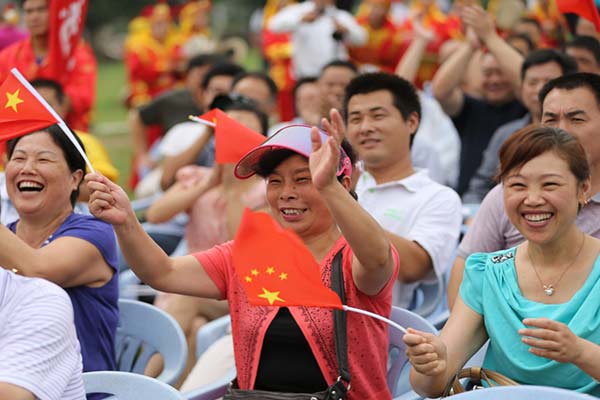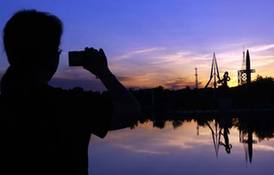Space dream one step closer to reality




|
 |
|
People in Zaoyang, Hubei province, hail the landing of astronaut Nie Haisheng, who is from the city. Wang Hu / Xinhua |
Space education
Wang Zhaoyao, the manned space agency's director, said the manned space program will organize more ground-based space-related educational activities in coming months. It will also stage more of these activities "in diversified fashion", he said.
Such lectures may also be expanded, as China's tracking and data-relaying technologies can support longer lectures between space and Earth, he said.
The space lecture, the highlight of the Shenzhou X mission, has received positive feedback from various quarters.
 |
| Home of space dreams |
Karl Bergquist, Europe's leading expert on China's space program, from the European Space Agency's International Relations Department, said it is very important to attract and inspire students, teaching them about various physical phenomena in outer space.
"I am sure there were many students who, after the lecture, went home thinking how they could be part of this great adventure, which is the exploration of the universe," he said.
"It is also important to attract students to study engineering or scientific issues. A lecture like the one Ms Wang Yaping gave is certainly an important impetus in this process," he said.
Leroy Chiao, a Chinese- American astronaut who stayed on the International Space Station for half a year, congratulated Wang Yaping and China's space program for taking the time and effort to inspire young people.
"Educational outreach is a very important part of the human spaceflight endeavor. ⋯ My hope is that the US and China can, and will, cooperate in space in the future. I believe it is mutually beneficial and will better relations between our two countries in other areas as well," he said.
Exchange visits
Deng Yibing, director of the China Astronaut Research and Training Center, said China's manned space program is willing to explore new cooperation in fields including astronaut training and joint flights with other countries.
Astronauts from the US, Russia and Europe have been invited to visit China. In the past two years, astronaut centers in China and Europe have exchanged visits to experience short training courses, Deng said.
"We believe that more extensive exchanges could help deepen understanding between us and establish a better basis for more concrete cooperation in the future," he said.
"China is willing to help train astronauts for other countries," he added.
Xinhua contributed to the story.












